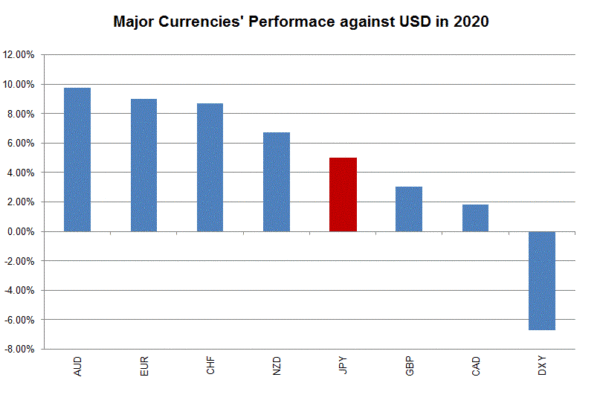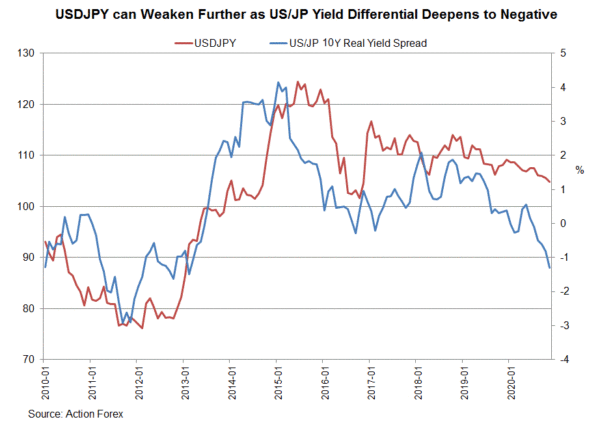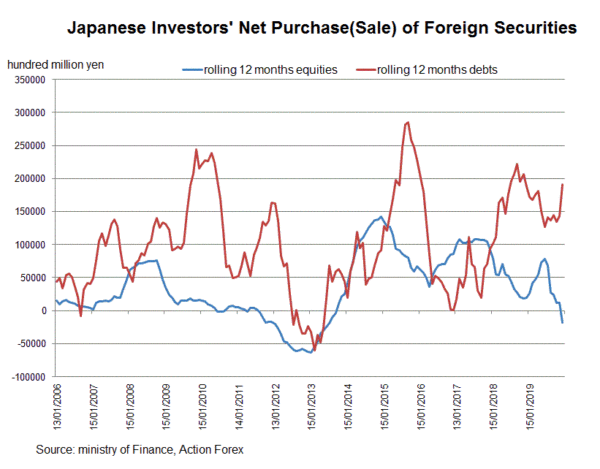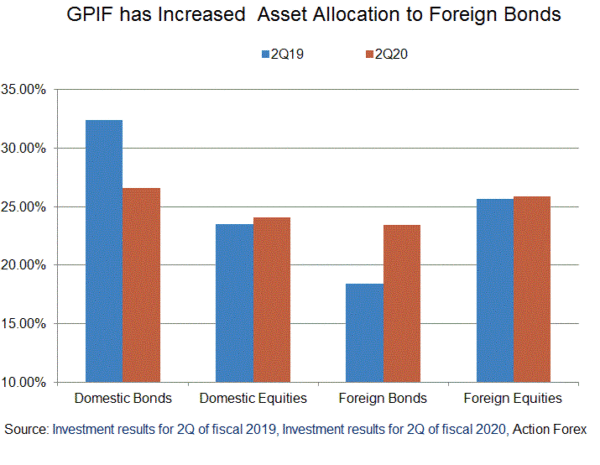Japanese yen gained +5% against US dollar last year. The strength was only modest, compared with about +9% gains of AUD, EUR and CHF. Notwithstanding the lackluster improvement in Japan’s inflation outlook and exhaustion of BOJ’s stimulus, we expect Japanese yen to extend its modest gain against the greenback in 2021, for a third consecutive year. Yield convergence, lower capital outflow and favorable current account balance are the key reasons supporting yen.

As global central banks have taken policy rates to almost zero, if not negative, this year, BOJ’s measures of negative interest rates and yield curve controls are no longer unconventional. In the past, JPY had been a popular funding currency in carry trade due to its low borrowing cost. Policy convergence has, however, made it less attractive, as Japanese yields are not exceptionally low anymore. As suggested in the chart below, real Treasury yield yield of the US has fallen below that of Japan. The downtrend of real yield differential has explained USDJPY’s weakness this year. It also indicates further weakness of the currency pair this year if the downtrend continues.

Investment in foreign securities has been a major source of capital outflow, containing JPY’s strength. Net purchase of foreign bonds amounted to 200 trillion yen in the first 11 months of last year. While the full-year figure would likely be the highest in recent years, it was mainly driven by the Government Pension Investment Fund (GPIF), the world’s largest pension fund. The latest data shows that the fund’s allocation to foreign bonds increased to to 23.5% in 2Q20, up significantly from 18.4% in 2Q19. Private investors appeared less incentivized to invest aboard due to narrower yield differentials. Indeed, net sales of foreign equities were reported in the first 11 months of last year, a phenomenon not seen since 2013. We believe taming of capital outflow could lend support to JPY this year.
 Although US dollar’s status as the world’s dominant reserve should remain intact in the foreseeable future, the country’s twin deficits have greatly eroded investors’ confidence over the currency over the past decades. While the record amount of fiscal stimulus is prone to aggravate the country’s fiscal deficit, Japan remains one of the few in the advanced economies that has maintained current account surplus.
Although US dollar’s status as the world’s dominant reserve should remain intact in the foreseeable future, the country’s twin deficits have greatly eroded investors’ confidence over the currency over the past decades. While the record amount of fiscal stimulus is prone to aggravate the country’s fiscal deficit, Japan remains one of the few in the advanced economies that has maintained current account surplus.
